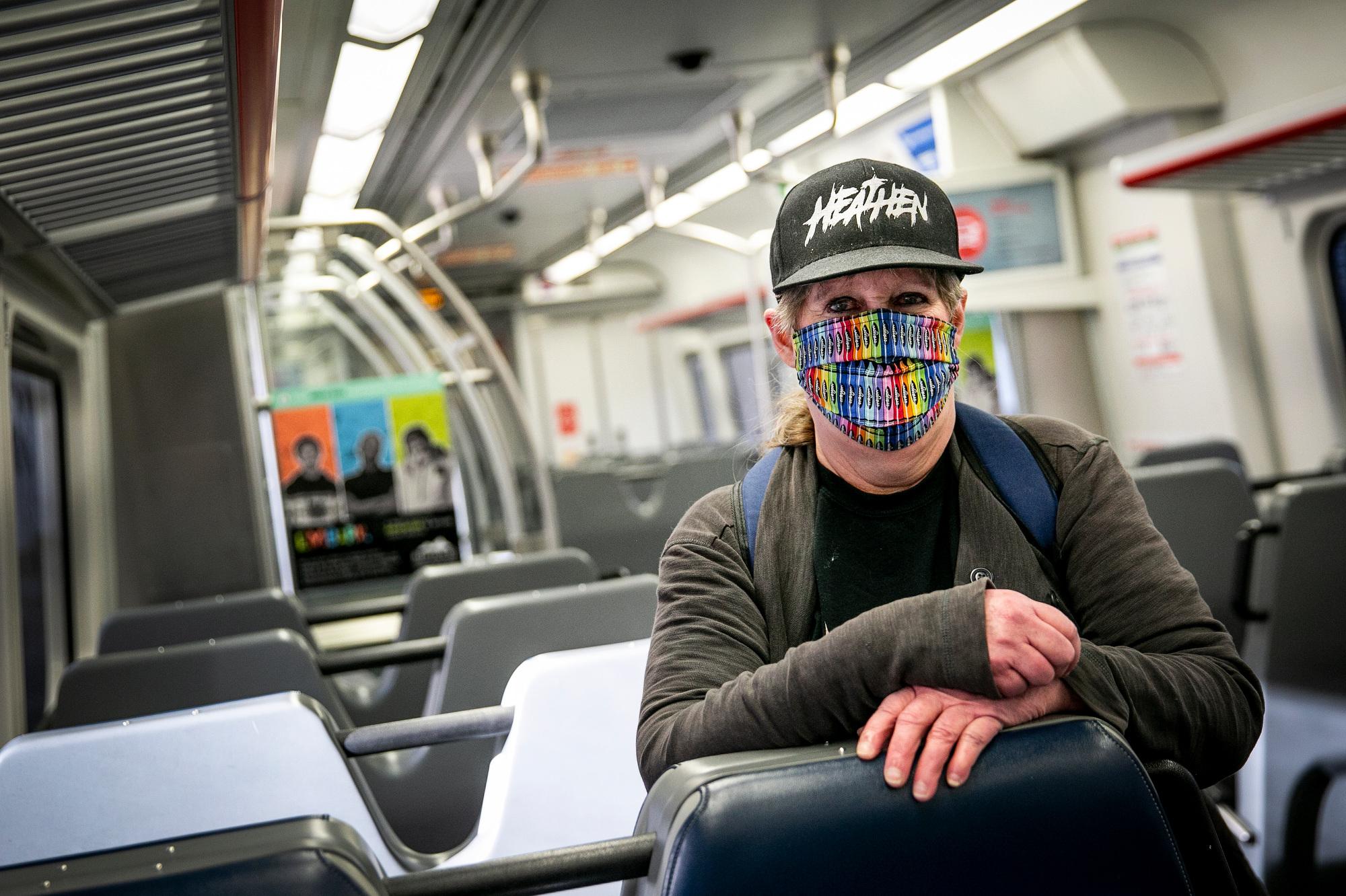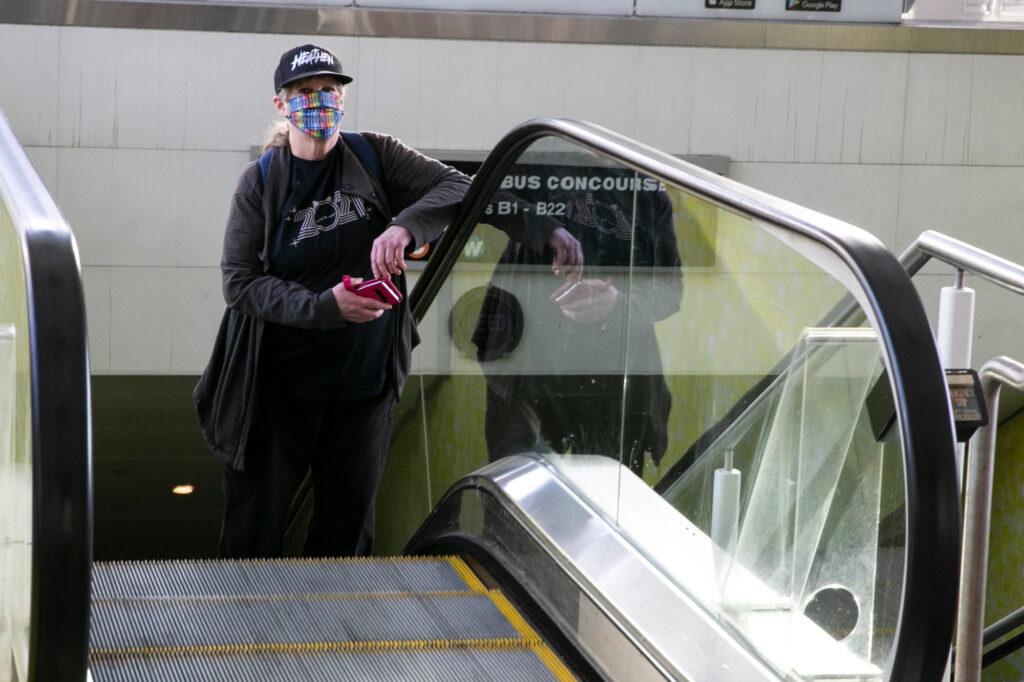
7:01 a.m. on a recent Sunday morning
Rachel Hicks leaves her home in Littleton and walks to the bus stop. She needs to be at her job at a restaurant at Denver International Airport by 9 a.m.
“It’s 13 degrees outside,” she says. “But it feels like 10 degrees.”
As the Coronavirus pandemic turns one, CPR News reporters checked in with Coloradans we met over the last year. Hicks recorded her commute and shared it with us.
7:11 a.m.
She boards the 66 westbound bus — it’s just her and the driver, she says with a relief. Five minutes later, she’s at the downtown Littleton light rail station and hustles toward the platform.
Prior to the pandemic, Hicks, 61, would take the 66 eastbound and transfer to an express bus to the airport. Since RTD cut service last year when the pandemic hit, she says that transfer would take nearly an hour. So now she must take one bus, two light rail trains, and a commuter rail train to get to work. On Sundays, when buses and trains run less often, transferring between all of those is tricky.
"This is the problem with the weekend commute,” she says. “That and these walks are not shoveled. Which means I probably won't make it. But we'll see."
7:18 a.m.
Hicks reaches the platform just as the train pulls away.
“I know the driver had to have seen me,” she grumbles. “There will be another one here at 7:33, which will make me officially late for work. But it is what it is.”
Hicks has thought about getting a job closer to home, but says it took her seven years to find the one she has now.
“I’m kind of leery of going out and finding a different job,” she says.
Hicks got rid of her car a few years ago because it was too expensive, so she’s now completely reliant on RTD. She had a job offer last year but had to turn it down because she couldn’t get to it in less than three hours. So for now she makes the two- to two-and-a-half hour one-way trek to the airport four days a week to support herself and her son, who was just diagnosed with epilepsy.
“RTD seriously needs to do better,” she says. “I am 61 years old and getting too old for this crap.”
7:33 a.m.
Hicks boards the D Line light rail train and makes a quick change to the E Line at Broadway.
“I’ll give props to RTD,” she says. “They did a phenomenal job of syncing these two trains up.”

8:01 a.m.
Hicks walks through the bus concourse at Union Station, where RTD has a hard time getting people to comply with mask rules. The agency recently announced it would enforce those rules, but Hicks says she hasn’t seen much a difference.
"So far about 80 percent of these people do not have masks on,” she says. “And I have yet to see a transit cop."
8:15 a.m.
The A Line train glides out of Union Station toward the airport. Hicks got COVID at least once last year, she says, and she suspects it was on the A Line. Hicks says Sundays are the most problematic, when the airport and the A Line are relatively busy.
“Masks have never been a problem on the A Line, thankfully,” she says. “Just overcrowding.”
Preliminary research suggests that public transit is relatively safe, and RTD has stepped up its cleaning and run more vehicles to help aid social distancing.
8:50 a.m.
The train arrives at the airport two minutes early, and Hicks treks across the Great Hall and through security. She gets to work at 9:06.
“That’s the end of my commute,” she says with a sigh. “Two hours and six minutes.”
Hicks’ commute will get shorter once RTD figures out how to restore more service, but that will likely require vaccinations to become far more widespread. So until then, Hicks is prepared for some long rides.









